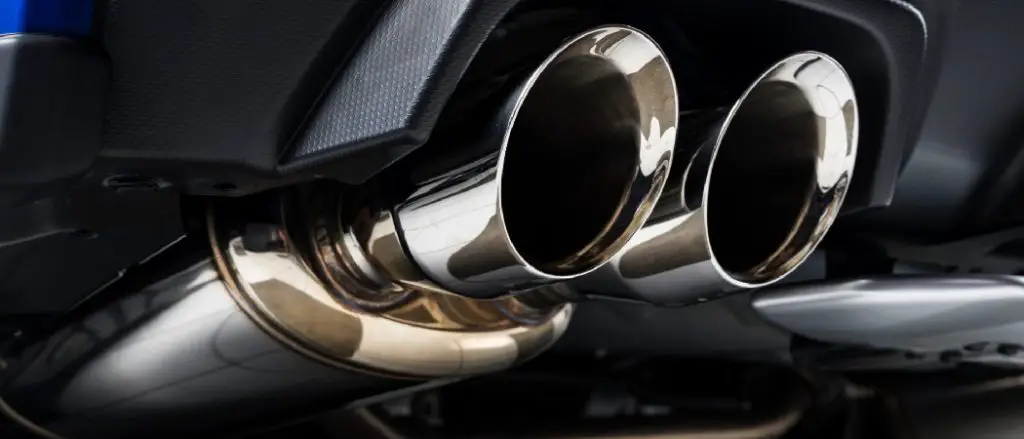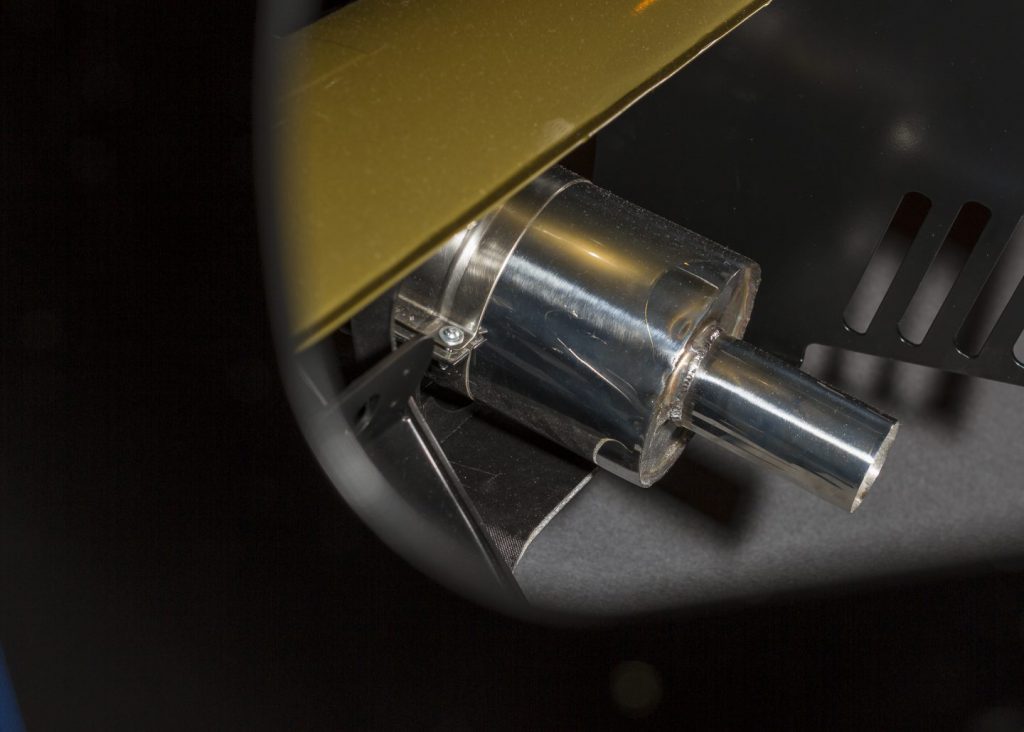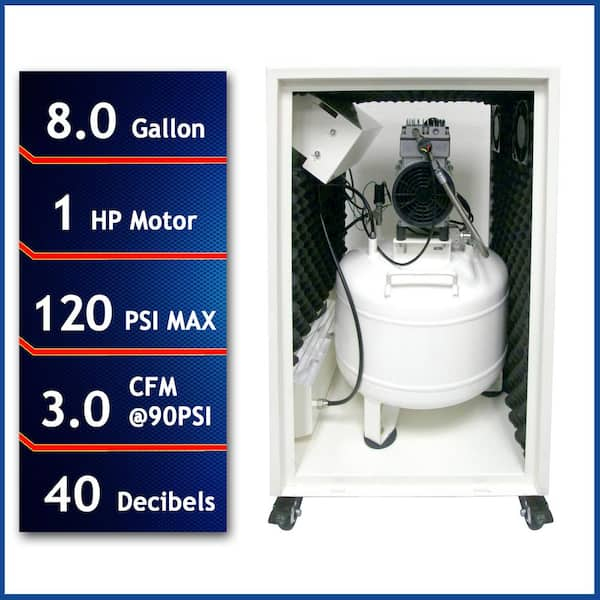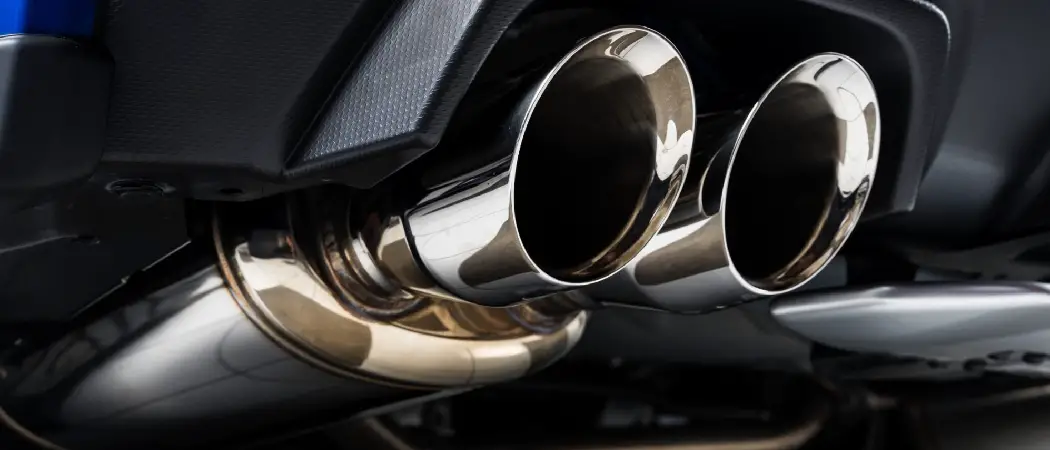To quiet down the exhaust, use a muffler or a silencer. Mufflers and silencers significantly reduce the noise emitted from the exhaust system.
In addition to mufflers and silencers, regular maintenance of the exhaust system, including checking for any leaks or loose parts, can also help minimize noise. Another effective method is to install resonators, which are designed to cancel out specific frequencies of noise produced by the engine.
By taking these steps, you can successfully control and reduce the noise generated by the exhaust system, ensuring a quieter driving experience.

Understanding Exhaust Noise
Exhaust noise primarily arises due to the explosion of gases in the engine during combustion.
Excessive exhaust noise can lead to hearing damage and irritation to passengers and pedestrians.

Identifying The Problem
To quiet down the exhaust, first identify the problem. Inspect the exhaust system for any leaks, cracks, or damaged parts. Use a flashlight to carefully examine the entire length of the exhaust for any visible signs of wear or damage.
Diagnosing Noise Levels
The first step in quieting down the exhaust of your vehicle is to identify the source of the excessive noise. By diagnosing the noise levels, you can pinpoint the specific problem areas and apply the appropriate solutions. It’s crucial to determine whether the noise is coming from the engine, the exhaust pipe, or any other part of the exhaust system.
To diagnose the noise levels effectively, follow these steps:
1. Stay Safe: Before getting started, make sure your vehicle is parked in a well-ventilated area and the engine is turned off. Your safety is of utmost importance.
2. Listen Carefully: Start by listening to the exhaust noise while the engine is running. Pay close attention to the volume, pitch, and location of the sound.
3. Examine the Exhaust System: Inspect the entire exhaust system, including the muffler, catalytic converter, and pipes, for any signs of physical damage or corrosion. Look for loose or broken components that could be causing the excessive noise.
4. Consider the Age and Condition: Keep in mind that older vehicles or those with high mileage may naturally produce louder exhaust noise. While it’s not always a problem, it’s essential to distinguish between normal wear and tear and any abnormal noises.
Locating Specific Noise Points
Once you have a general idea of where the noise is coming from, the next step is to locate the specific noise points within the exhaust system. By identifying these points, you can focus your efforts on addressing the root causes. Here’s how to do it:
1. Visually Inspect the Exhaust: Conduct a visual inspection of the exhaust system, paying attention to any visible leaks, cracks, or holes. This can help you pinpoint the general area of the noise.
2. Feel for Leaks: Run your hand along the exhaust pipes and components, checking for any leaks or gaps. Be cautious, as the exhaust components can be hot. If you feel any escaping air or notice a change in temperature, there may be a leak contributing to the noise.
3. Utilize a Stethoscope: If necessary, use a mechanic’s stethoscope to listen for more specific noise points. Place the probe on various parts of the exhaust system while the engine is running, and listen for any abnormal sounds. This can help you pinpoint the exact source of the noise.
By diagnosing the noise levels and locating specific noise points, you can gain a better understanding of the issues affecting your vehicle’s exhaust system. Armed with this knowledge, you’ll be better equipped to tackle the noise problem head-on and implement the necessary measures to quiet down the exhaust effectively.
Effective Solutions
When it comes to quieting down the exhaust of your vehicle, there are several effective solutions to consider. Whether you’re looking to reduce noise for a more peaceful ride or to comply with local noise ordinances, upgrading exhaust system components and installing noise-reducing add-ons can make a significant difference.
Upgrading Exhaust System Components
Upgrading exhaust system components is a great way to reduce exhaust noise. By installing a muffler with noise-reducing baffles or opting for a high-quality resonator, you can effectively dampen the noise produced by the exhaust system. Additionally, replacing the stock exhaust headers with aftermarket headers designed for sound reduction can also contribute to a quieter exhaust note. It’s important to ensure that the components you choose are highly rated for noise reduction and compatible with your vehicle’s make and model.
Installing Noise-reducing Add-ons
In addition to upgrading exhaust system components, you can also install noise-reducing add-ons to further quiet down the exhaust. Consider adding a resonator to your exhaust system to help minimize sound waves and reduce overall noise levels. Another effective option is the installation of a silencer or exhaust tip with integrated silencing technology, which can help to muffle loud exhaust notes. When selecting add-ons, it’s essential to choose products that are specifically designed for noise reduction and compatible with your vehicle.

Maintenance Practices
Maintaining your exhaust system is essential to ensure it functions optimally and stays quiet. By implementing regular inspection of the exhaust system and replacing worn-out parts, you can effectively quiet down the exhaust. Let’s delve into each of these maintenance practices:
Regular Inspection Of Exhaust System
Regularly inspecting your exhaust system is crucial for keeping it quiet. Here are a few steps to consider:
- Start by examining the exhaust system for any visible signs of damage or leakage. Look for cracks, rust, or loose connections.
- Ensure that the exhaust pipes are securely fastened to the vehicle’s frame. If any clamps or hangers are loose, tighten them.
- Inspect the muffler and catalytic converter for any signs of wear or damage. Replace these components if necessary to maintain a quiet exhaust system.
Replacing Worn-out Parts
When it comes to quieting down the exhaust, replacing worn-out parts is vital. Here’s what you need to know:
- Check the condition of the exhaust gaskets. If they are deteriorated or damaged, replace them to prevent leaks that can cause excessive noise.
- Replace any damaged or corroded exhaust pipes. Cracks or holes in the pipes can result in increased noise levels.
- Consider installing a new muffler if the existing one is worn-out or no longer provides sufficient noise reduction.
- Ensure the quality of the components you use for replacement. Opting for high-quality parts will not only help quiet the exhaust but also enhance its overall performance and longevity.
In conclusion, regular inspection and timely replacement of worn-out parts are key maintenance practices to quiet down your exhaust system. By staying proactive and addressing any issues promptly, you can enjoy a quieter, more pleasant driving experience.
Professional Assistance
Professional assistance is crucial when tackling exhaust noise issues. Consulting with mechanics and seeking custom solutions can effectively quiet down your exhaust system.
Consulting With Mechanics
Mechanics possess expertise in exhaust systems. Consulting with them can help pinpoint the source of the noise and offer viable solutions.
Seeking Custom Solutions
Custom solutions can tailor to your specific needs. Mechanics can recommend mufflers or other parts to reduce exhaust noise.
Tips For Noise Reduction
Driving Techniques To Reduce Noise
1. Shift to higher gears early on for less engine strain.
2. Avoid rapid acceleration and deceleration to reduce exhaust noise.
Utilizing Soundproofing Materials
1. Install a quality muffler to dampen exhaust sounds.
2. Consider using soundproofing foam or mats in the vehicle.
Frequently Asked Questions On How To Quiet Down The Exhaust
How Do I Make My Exhaust Quieter?
To make your exhaust quieter, you can add a muffler or a silencer to reduce the noise. Another option is to insulate the exhaust with sound-deadening materials. Regular maintenance and repairs can also help reduce noise levels. Be sure to check local laws and regulations before making any modifications.
What Reduces Exhaust Noise?
To reduce exhaust noise, you can use a muffler or a silencer. These devices help to dampen the sound produced by the exhaust system, resulting in quieter operation.
How Do You Fix A Loud Exhaust?
To fix a loud exhaust, check for leaks, tighten loose parts, replace damaged components, or install a muffler.
How Do I Lower My Exhaust Tone?
To lower your exhaust tone, consider installing a muffler or resonator, adding a sound-dampening material, or adjusting the exhaust system.
Conclusion
Quieting down the exhaust is essential for a more enjoyable driving experience. By following these simple tips and utilizing sound-deadening materials, you can effectively reduce noise and improve the comfort of your vehicle. Whether it’s for personal enjoyment or consideration for others, a quieter exhaust is a valuable investment.

